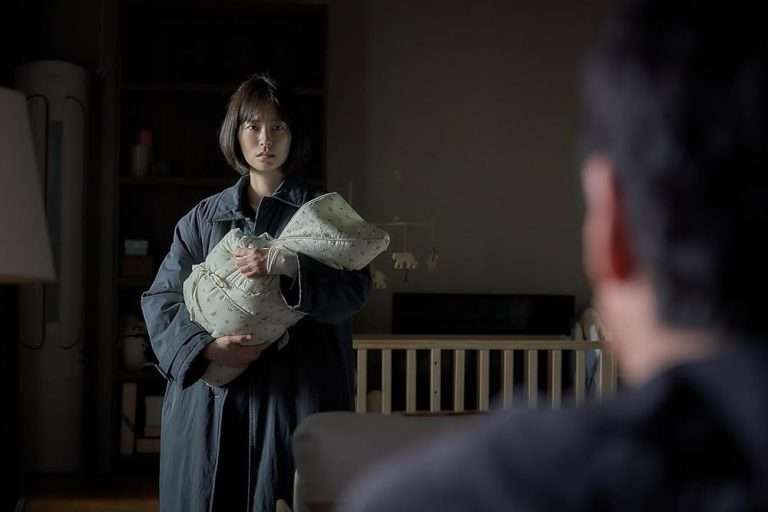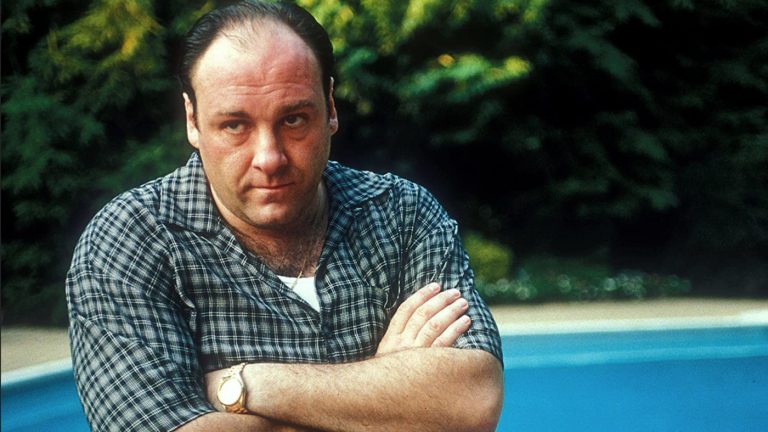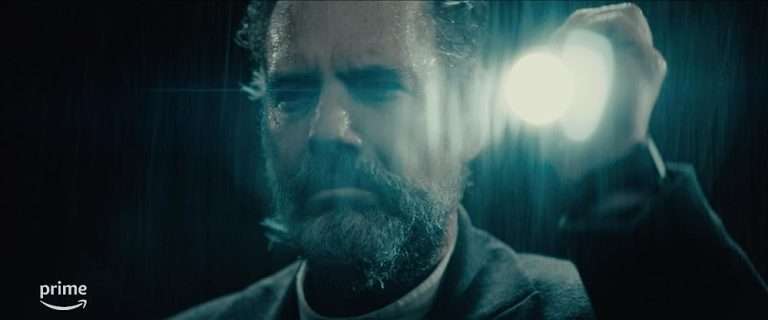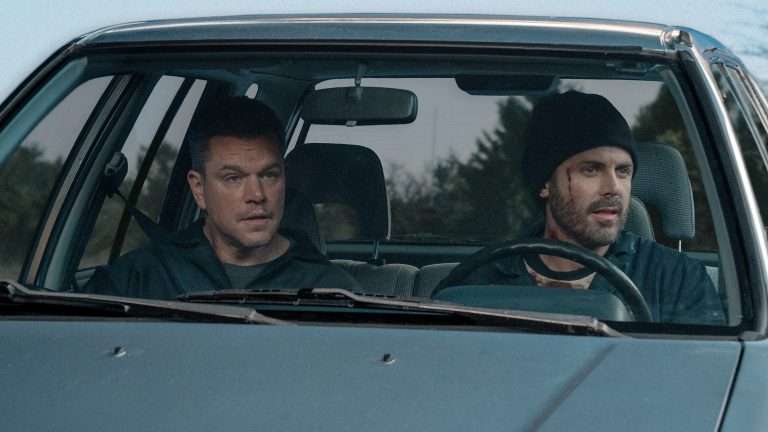Enjoyment of “Nonnas” is dependent on whether or not a viewer is charmed by the notion of “old-fashioned” filmmaking, as Stephen Chbosky’s latest biopic is the type of light-hearted crowd pleaser that Hollywood has effectively abandoned. While it’s squeaky clean, earning the rare PG rating, “Nonnas” is unwavering in its sincerity, as the film explores the feelings of guilt, shame, and depression that can emerge upon the death of a loved one. There are deeper ideas about intercommunity resistance and loneliness among the old people, but “Nonnas” opts to tell a straightforward, inspirational story that rewards the viewers with catharsis. While a cynic may claim that Chbosky has bent a real story into a formulaic Hollywood picture, “Nonnas” coast on the charm of its endearing cast.
Vince Vaughn stars as Joe Scaravella, a construction worker from Staten Island who is dealing with the recent death of his mother, with whom he shared a close bond. Although Joe has a community of friends at his job, he finds that the best way to save himself from feelings of disparity is to cook for his best friend Bruno (Joe Manganiello) and his wife, Stella (Drea de Matteo), as it allows him to utilize his mother’s recipes. Although Bruno encourages Joe to use the money from his mother’s life insurance to do something that brings him joy, he doesn’t anticipate his friend’s seemingly erratic new plan; Joe intends to start a new Italian restaurant, in which he invites several “nonnas” (Italian grandmothers) to serve as his chefs.
Joe’s belief is that food made with love and history will resonate with customers far more than the notion of prestige; within each recipe are memories, and helping a group of older women allows Joe to process what life will look like without his matriarchal figure. Thankfully, Chbosky managed to give comeback roles to each of the actresses cast as the “nonnas” that Joe hires; included in the supporting cast are Susan Sarandon as Gia, Lorraine Bracco as Roberta, Talia Shire as Teresa, and Brenda Vaccaro as Antonella. Perhaps these actresses, all of whom have appeared in some of the most influential films of the 21st century, are overqualified for the material. Nonetheless, “Nonnas” is reliant upon their chemistry, and Chbosky made the smart gamble in dedicating a majority of the film’s runtime to scenes of these characters learning and working with each other.
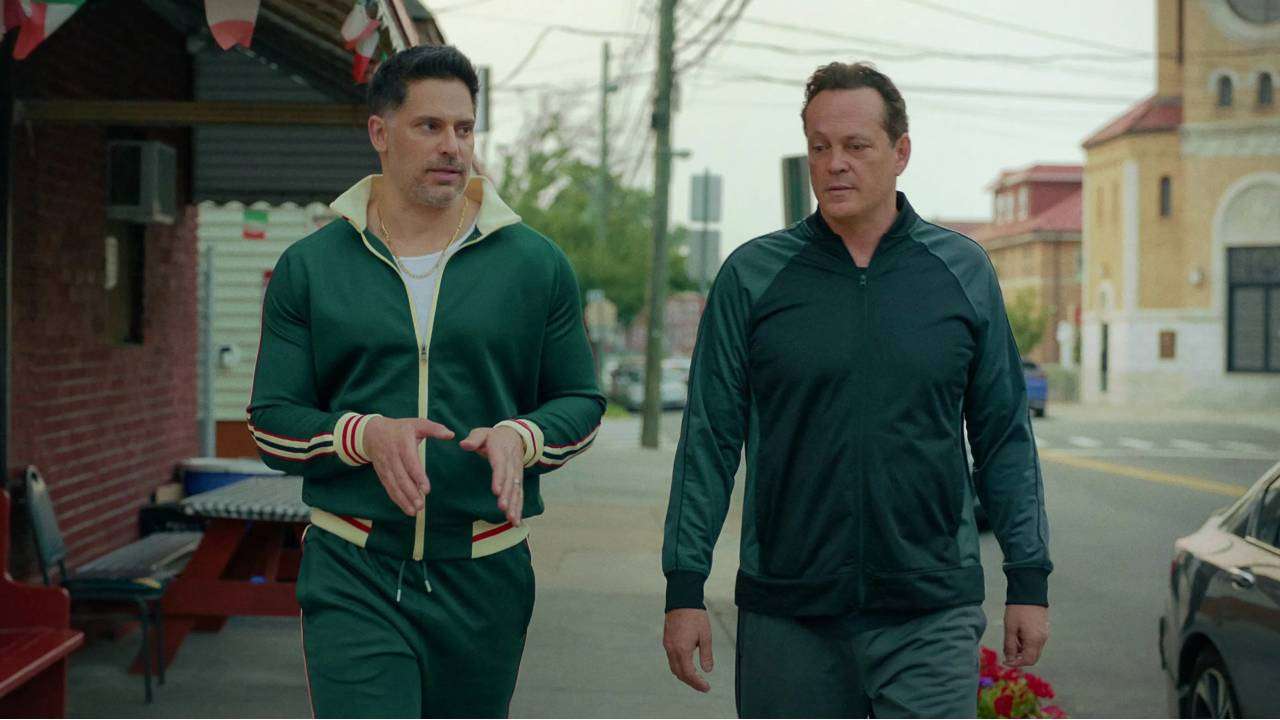
What’s impressive about Chbosky’s approach is that there is no point at which he undercuts his characters’ interiority for the sake of a gag. There’s a broader, more commercial version of “Nonnas” that featured more exaggerated caricatures, physical hijinks, and erroneous subplots made to create artificial tension, but Chbosky opts to take a more procedural approach. While cinematographer Florian Ballhaus pulls off some gorgeous shots of the diversity of Staten Island culture (including some beautifully nostalgic flashback sequences), “Nonnas” becomes a process-oriented film that examines the efforts involved in putting together a small business.
Vaughn is often a far better actor than he is given credit for, and “Nonnas” is a reminder of the depth that he can bring to a complex protagonist role in which his emotions are often enigmatic. Vaughn developed a reputation as the snarky, clever fast-talker in early roles like “Swingers” and “Old School,” but here he’s cast as a character whose wittiness is a defense mechanism. Joe’s half-hearted attempts to diffuse any serious situations with a joke reflect his frustration with reality, as he has sought both his mother’s guidance and the notion of being needed. Joe’s inherent flaw is that he doesn’t know how to be selfish. While offering work to older women may seem, on its surface, to be an act of charity, it also gives Joe the opportunity to feel like he’s making a positive contribution to his family’s culture.
Vaughn’s reactive, deadpan style of comedy is a perfect fit for “Nonnas,” which avoids any larger comedic setpieces in favor of more intimate moments. Scenes of the four women putting together elaborate meals are detail-oriented to the point that it’s easy to understand why each character has put so much concentrated effort into their protection. Beyond their inherent desire to please, they see the recipes they’ve followed as a representation of their life’s work, and interpret any criticism as a personal judgment. Joe’s attempt to create an experience, and not just a business, goes against everything that American economics has ever stood for, as he puts his faith in people. Although the film is surprisingly unflinching in its depiction of disparity, Joe’s optimism that people will be drawn to experiences that are personal gives “Nonnas” its most optimistic qualities.
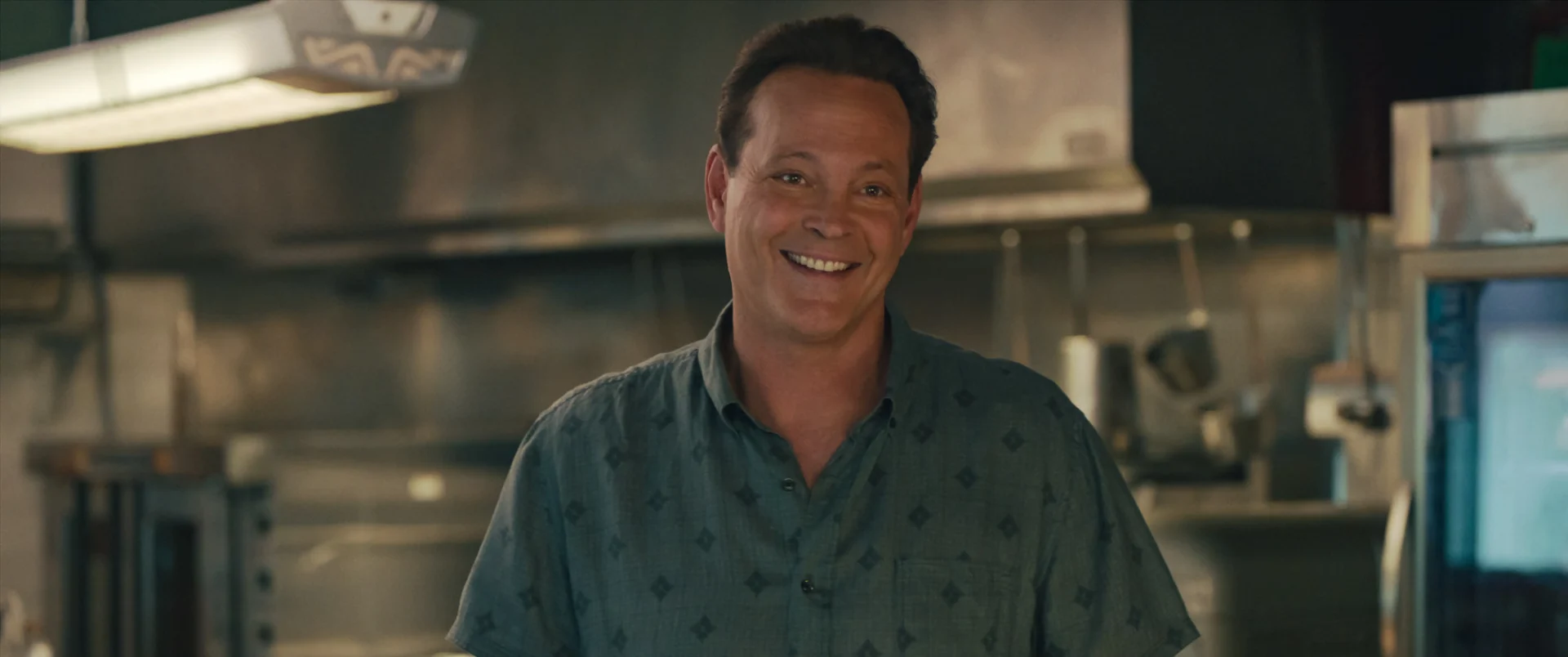
Vaughn’s role could have felt more thankless if he were purely the instrument used to introduce the more interesting supporting characters, but Joe is given a compelling subplot in which he reconnects with his childhood crush Olivia (Linda Cardellini), whose grandmother is one of his employees. While on its surface, this feels like a very trite storyline to pursue, it acquires surprising nuance when it is revealed that Olivia is also in a stage of grief, having recently lost a husband. Olivia’s trepidation about finding a new romantic partner after a recent tragedy mirrors Joe’s discomfort about helping another maternal figure in the wake of his mother’s death. Although this is arguably the most predictable aspect of the film, Olivia’s reasons for being involved in the business are satisfying, and the chemistry between Vaughn and Cardellini is consistently strong.
Chbosky is a filmmaker whose talent for capturing universal experiences has not always been consistent with his stylistic prowess; while “The Perks of Being a Wallflower” was a refreshingly earnest examination of coming-of-age anxieties, his subsequent efforts on “Wonder” and “Dear Evan Hansen” were undercut by baffling directorial choices. “Nonnas” is a much more streamlined, simplified effort, but that doesn’t mean that it lacks complexity. There’s enough nuance to the performances that the more overtly emotional moments, a majority of which take place in the third act, feel completely earned.
“Nonnas” is consistently pleasant, rarely dull, and completely pure in its intentions. While some of its old-fashioned execution can feel rote at times, it never feels burdened by cynicism. Although this type of earnest, charming crowd pleaser may have fallen out of favor with Hollywood within the streaming era, “Nonnas” feels like a delightful reminder of the past.



